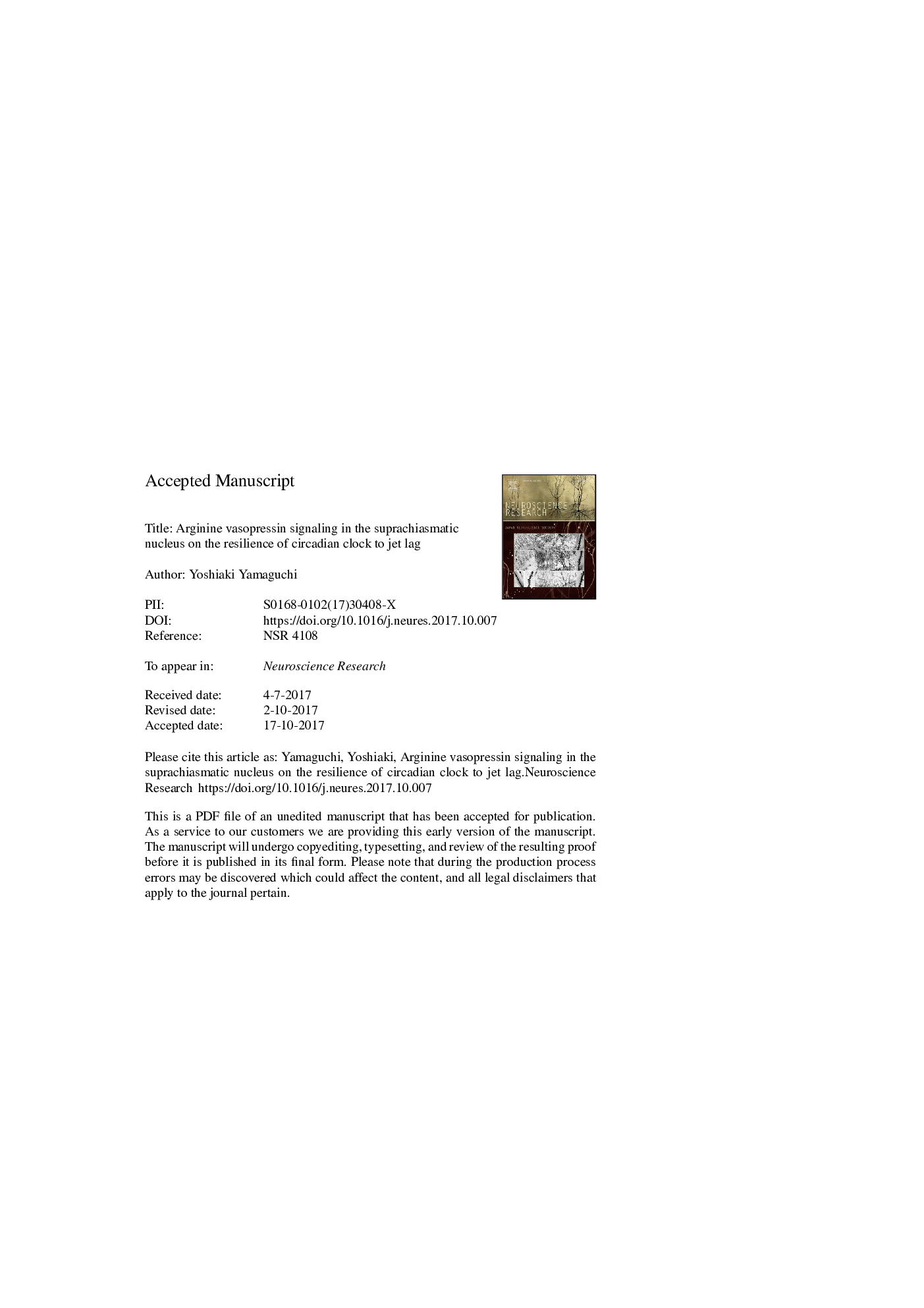| Article ID | Journal | Published Year | Pages | File Type |
|---|---|---|---|---|
| 8842091 | Neuroscience Research | 2018 | 14 Pages |
Abstract
Almost all organisms on Earth have an internal biological clock, known as the circadian clock. This clock system drives robust oscillations in metabolism, physiology, and behavior, such as hormone secretions, blood pressure, and sleep/wake cycles, with a period of approximately 24Â h. In mammals, circadian rhythms are generated by a timing system comprised of a master pacemaker located in the suprachiasmatic nucleus (SCN) of the anterior hypothalamus, which orchestrates the clocks in the peripheral tissues. Jet lag, caused by an abrupt change of environmental light-dark cycles, induces a temporal misalignment of the output signal from SCN. We revealed that arginine vasopressin/V1 receptor signaling in the SCN plays a critical role in the resilience of the circadian clock to jet lag. I here discuss a model of SCN neuronal system under a jet lag condition.
Related Topics
Life Sciences
Neuroscience
Neuroscience (General)
Authors
Yoshiaki Yamaguchi,
